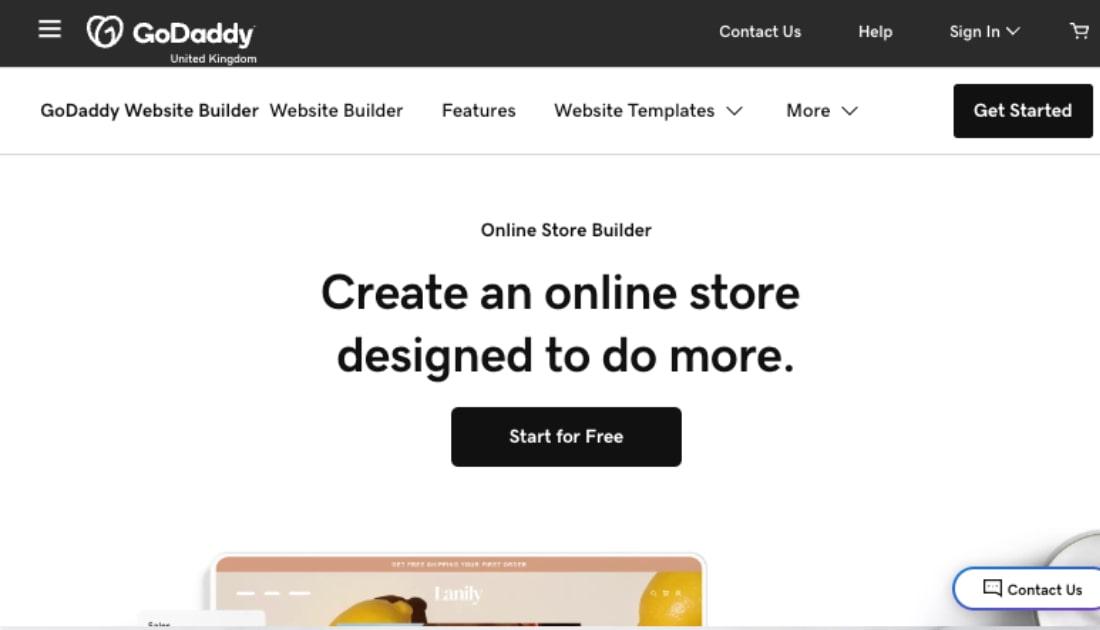What would you do if your business’s main source of income all but disappeared overnight?
That’s the scenario that Treddafydd Organic had to face when the Covid-19 lockdown was imposed.
In the past, the organic farm had focused on selling its produce through a combination of stalls at farmers’ markets and selling wholesale to a local deli.
When lockdown started, Sharon, Vincent and Huw, the team behind the organic farm, knew they’d have to try something new to keep selling.
That something new was fruit and veg box deliveries with orders powered by a brand-new Online Store from GoDaddy.
Writing in a blog post at the time, the team said: “After a few weeks of worrying we decided to take out fate into our own hands and start an organic fruit and veg box delivery around the peninsula! As every door closes, another one opens. If you push it.”
It was a plan that worked. Treddafydd Organic went from not having an online shop to generating £10k+ in revenue over the course of 90 days.
And as Sharon explained, the fact that GoDaddy’s Online Store is so easy to use helped make the project a success.
“We had tried to set up a WordPress site but found it too difficult,” she said. “But we found it very easy to use the GoDaddy site and marketing tool.”
Although the fruit and veg boxes are here to stay, the Treddafydd Organic team wants to make greater use of their online shop by selling their jams across the country.
So, what should you do if you want to follow in the footsteps of Treddafydd Organic and start selling online?
Here are some tips to make sure you get an online shop that’s right for you and your business.
1. Find a platform that works for you
WordPress wasn’t a good fit for Treddafydd Organic, but GoDaddy’s Online Store is.
Make sure you find an ecommerce platform that you like and find straightforward to use.
If possible, look for a free trial so you can try before you buy. You can sign up for a free trial of GoDaddy’s Online Store here.
2. Make sure your chosen platform meets your business needs
There’s no point in spending a fortune on an enterprise ecommerce solution if you only plan to sell a few product lines.
GoDaddy’s Online Store allows you to list up to 5,000 products, meaning its suitable for all but the very largest of ecommerce sites.
If you end up paying for a high-end enterprise solution you don’t need, then it’s likely the cost of running it will eat away at your profit margins, so be sure you only pay for what you need.
3. Ensure you can access support if you need it
Getting your first online shop up and running can be challenging, so make sure there’s someone there you can turn to if you need help.
For example, the GoDaddy Guides are available to help our customers get the most out of the products we sell, so you’ll always be able to turn to them if you get stuck.
If you decide to use another provider, make sure you understand what level of support is available before you commit to anything. That way you’ll know you can get help when you need it.
4. Ensure the site is provided by, and hosted on, a reputable platform
If you don’t use a reputable provider for your online shop, you may find that you suffer from regular, unplanned downtime which restricts your ability to generate sales and profit.
When considering which provider to use check reviews on sites such as Trustpilot to see what real customers are saying about the service you’re considering.
5. Consider your business needs and find an online shop that matches them
You don’t want to pay for an online shop and then discover that it only allows you to sell physical products when your business is based around digital products.
Here are some questions which will help you find an online shop that matches your business needs.
- Does it support the type of products you want to sell?
- Are the payment options on offer a match for the options you already use?
- Will it let you ship to your target market(s)?
- What shipping options are there?
- Are there transaction fees?
- Does it offer integration with online marketplaces such as eBay and Amazon?
- How easy is it to add/remove products?
- How does inventory management work?
- What marketing features are on offer? (eg blogging, social media integration, email marketing integration).
It might be a good idea to make a list of “must have” and “nice to have” features so you can easily compare ecommerce packages and work out which one best meets your needs.
Summing up
As Treddafydd Organic shows, getting an online shop up and running doesn’t need technical skills. If you want to start selling online but are struggling to get your head round everything, why not speak to a GoDaddy Guide so they can help get you up and running.







